Kate Bowler: When someone says the word family, what comes to mind an awkward us or a natural ease, the warmth of being known or the pain of neglect? The image of the family is so deeply imprinted onto us, pressed into our minds and in our hearts and in our sense of who we are in the world. And so when people say things like family is everything after all or what can I do, it’s family. It leaves many of us with a deeply existential question. What do we do when our families are sources of pain or confusion or worse, harm, neglect or abuse? How do we or how can we learn to let go of complicated childhoods when we no longer need the defenses we created defenses that once protected us? But now we’ve long outgrown. My name is Kate Bowler and this is everything happens. My guest today is the incredibly resilient Tara Westover. You probably recognize her from the blockbuster bestselling memoir Educated that was released a few years ago. Today we have a very tender conversation. We’re talking about heavy subjects. Tara survived neglect and abuse from her parents, especially from her older brother. And now she is sifting through it with such wisdom to call for us. It’s so rich and surprisingly gentle about how she makes sense of it, where she feels wronged, how she lives under the competing truths of people’s best when she deserved better. I’m telling you, I loved Tara before this conversation, but holy cow, this was a privilege. Let’s get started, Sally. Tara, my friend. It is so good to be with you here today.
Tara Westover: No. Thank you for having me. My pleasure.
Kate Bowler: You grew up as the youngest of seven kids in a survivalist Mormon family in Idaho, and that’s like a lot to unpack right away. So I wondered, because you’re so careful of categories. I love that you’re a historian. So would you mind just giving me a picture of what life was like growing up?
Tara Westover: Well, when I was writing the book, actually trying to decide what exactly to call my parents was a. It was a pretty big problem right away because they are Mormon, as you said, but they’re not really representative of Mormonism because, you know, everyone in our town was Mormonism, but they went to school and they went to the doctor and the adverse certificates and they had found and we didn’t have most of those things and at some points, none of those things. And so I right away when I was trying to write as Mormonism really cover it and survivalist was as close as I could come to because we were always kind of preparing for the end of the world. My dad wanted a 10 year supply of food and he was always thinking that the apocalypse, the second coming was right around the corner. And so I sort of settled on that to try to capture it. But you know, really it it kind of does defy category. My parents, they just didn’t believe in a lot of things most people take for granted. So doctors and hospitals were out really anything to do with the government. And then, of course, really importantly, education and school. So we didn’t go to school. Most of us never went to school and the youngest three. We never we never set foot in a classroom at all.
Kate Bowler: You include this incredible beginning and ending treatise on why every one of the words is evocative and also slippery. And they just you’re so loving with with the way that you describe your upbringing and also just the complications in it.
Tara Westover: The thank you for saying that I was trying to write it in a loving way. And you know, there’s a lot of things that are difficult about writing. And one of the things that is nice about writing is that you do get to present your sort of most reflective, polished self. And so it’s not like I’m never angry at my family and it’s not like, I’m never ranting. I have rants. I have moments of extreme anger. I have moments of extreme over justification where I just can only see things from their point of view. And the nice thing about a book, I think, is you actually get to polish that up a little and present the most thoughtful version. So that’s what I was trying to do. But I think, yeah, I wouldn’t want anyone to think that. That means that I don’t have moments where I go into one territory or the other. Yeah.
Kate Bowler: I’ve always found it’s really hard for me to write about, especially my parents, in part because there’s so much love, even when I’m describing something that broke my heart. You carefully describe the kind of. Anchoring fundamental truths that governed, especially your dad’s thinking, I wondered if you could walk me through some of them.
Tara Westover: Well, yeah, that is that’s a big question. I mean, it changed year to year, but I would say there was a kind of paranoia that was a through line to my dad. He called it a lot of different things. Sometimes it was the Illuminati. Sometimes it was a phrase for Mormonism called the Guardian and robbers. But the basic idea was that the world was being taken over by this band of, you know, terrible people and that they were in control of everything. Yeah, I guess it was a lot of conspiracy theories back at a time when there weren’t as many conspiracy theories as there are now. Now I feel like some of the things he thinks might be more mainstream because social media has made them so mainstream. But when I was a kid, they were more unusual. And so I guess that was it started out where it was kind of anything to do with the government. He was very sure that the government had been infiltrated by these forces and then that’s why we didn’t go to school because schools are owned by the government and it sort of grew or metastasized into other areas where he started. By the time I was seven or eight, he was convinced that doctors and hospitals, what he termed the medical establishment were all part of that as well. So he started developing these ideas that if you took antibiotics, that it was you were going to damage yourself spiritually because God was against them. Mm-Hmm. You know, he would tell people that their children’s children would never enjoy good health if they took an antibiotic. You know, that was a really serious kind of spiritual thing for him. And so then whenever we went to the doctor, if somebody’s broken arm, we would go to the doctor generally. But otherwise, yeah, we just did not go. No vaccinations. Yeah, we just that that became another. My mother became a midwife so she could deliver babies so that in theory, no one would ever have to go to a hospital or doctor. And you know, I never had so much as a Tylenol till I was almost 18. When I was in college, I somebody convinced me to take a Tylenol and I was terrified. I thought it would make me infertile and make my eyes fall out or. Whatever, yeah, so it was a lot of fear of of things and especially the outside.
Kate Bowler: Sounds like your world was like very large in one sense, like there was a sense that there are always bigger forces at play and then also very small like that your family was very insistent on, you know, wanting to be independent. I guess it just makes you want to ask like what what your relationship with fear was like growing up? Did it make you kind of imagine the the wider world as being a terrifying place? Or did it feel just kind of like many kids do where it’s their world is as big as their as their backyard?
Tara Westover: Yeah, I think it was pretty normalized for me. I did think of the world as a scary place. Never occurred to me that that fear was being generated inside. I thought the world just was scary. I thought doctors probably were trying to kill you. And public school probably was the brainwashing mechanism. And everybody else was had a band god and wasn’t living in the right way except for us. Yeah, but with these things, because you know, when you’re a kid, it’s the only life you ever know and your family kind of makes your world for you. And so whatever that world is, that feels normal.
Kate Bowler: Sometimes I picture childhood almost like a snow globe, like it’s, you know, and there’s like chaos inside of it. But at the same time, there’s like such a tight boundary and like safety to being inside. But you write so poignantly about the fear that kind of came from the outside and then from the inside, and you’re trying to navigate what it was like to be in a home that could be really beautiful in one moment and then and then really terrifying in the next. I’m just thinking of your older brother who was a really complicated person.
Tara Westover: I think because it was there so much that was coming from inside, but it was projected onto the outside. I think I imagined that it belonged to the outside, and it took me quite a few years after I left to realize that most of the fear that I was feeling belonged to that place in that world, you know that that it was a projection and. You know, my dad would come to see me in college the few times that he did, and he would give me these long lectures about the danger I was in and if the world ended, I was going to be, you know, basically among the sinners like Sodom and Gomorrah, and I was going to not be saved or I was going to go to the doctor and I was going to get poisoned. Or, you know, he would describe all these threats to me. And it took me a lot of years to realize, actually, I am OK. And the only times that I’m not OK is when I’m home. Actually, those are the times. I’m really not OK. Those are the times when we actually do have something to be afraid of, which was my older brother. I know there was one moment a kind of dramatic moment in college when I had a fight with my dad and I and I did scream something like that at him about why was he so afraid of all these made up monsters, but what? But he couldn’t see the monsters in his own house. Wow. Yeah, that was a great confusion of fear and where it was coming from and what it was directed toward and what it was a projection onto and all that I still kind of sorting through that, I think a little bit.
Kate Bowler: Yeah. I mean, honestly, you strike me as a very, a very brave person, a person who when they know things, they. Describe them, honestly to the people who are supposed to love them in reading the book, there are so many beautiful and intense moments in which you were really honest about how awful and terrifying your life was and you were not believed. And in those moments, like my heart just broke for you when we’re kids, there’s that constant slippage right between, like the world that’s made for us. And then the one that we do, we know intuitively mirrors back something about who we really are. I think you were constantly saying true and lovely things about your own worth in a world that subjected you to a lot of danger and fear. You strike me as someone who was, like, pretty brave.
Tara Westover: Well, that’s kind of, you know, it’s interesting that you would say that because when my sister, you know, I was in graduate school, I went to college, it was a kind of a disaster at first, but eventually I sort of got my feet under me and I started to do pretty well. And then I ended up going to graduate school in the UK of all places. I won the scholarship and I left, you know, left the country left, and it was at that point that my sister. Said to me, Oh, we need to confront our parents about our brother, he’s dangerous, he’s threatening, he’s going to do things to the nieces and nephews like we need to deal with this. And I was the opposite of that situation. I said, No, I don’t want to do this. I think this is a terrible idea. I think this will end badly. And I don’t want to do it. And you know, I’ve thought a lot about why when she first asked me that, I said, now I don’t want to do this. And I think it was because. I finally found the right sentence, and I put it in the book, and then I finally knew it was once I kind of stumbled into it, I wrote it when I’d written a bunch of things and then none of it was true. And then finally, I wrote something. I was like, Oh, that was the reason. And I realized what the reason was is, I didn’t want to tell my parents about my brother, Sean, because I didn’t want to risk discovering that they already knew. Uh-Huh. Because I knew that they already knew like my mother had seen it, my mother had been present for a lot of it or or in the next room or in some cases in the room, and I knew that she knew and I. But I had this kind of split in my brain where I thought, Well, as long as I haven’t told her, there’s a way I can kind of carry on believing that she doesn’t know and that if she did know she would be so upset and would be really incensed on my behalf and would want to help. And I think when my sister said, Well, let’s confront our parents, let’s do this to stand together. My my thought was, I don’t want to know how they’re going to respond to that. I would much rather not know. How they’re going to respond.
Kate Bowler: Sounds also like just choosing another true thing, which is that Iran loves you. I that our parents love us, but like the contingency of that sentences. But what would they know? Yeah, what would they do if they know
Tara Westover: What I had to realize? I think I had this conversation a lot with my brothers because when you… At least in my experience, when you become estranged from people, if you think that a certain relationship is really toxic and unhealthy and you want to get out of it, a lot of really well-meaning, lovely people will come along and try to help you see the relationship differently, and they’ll try to say they’ll say things to you, like, Well, they love you and I know they love you. And that’s the family’s most important thing. And I know your parents love you, and they’ll just say that to you over and over again. And I finally realize what I started saying back to people for better or worse is that they were right. My parents did love me. That was true, but love was not the motivating factor. It wasn’t driving the decisions that they were making. I wouldn’t. I would never go so far as to deny that it existed outright because I do think in their own way, my parents loved me. I think that that in as much as is possible for them, I think they did. But it’s not what was behind so much of what they did. It took me a long time to realize I’m not even sure I fully realize that even when I was writing educated, I think I was still living from a place where they really loved me, and I just didn’t quite understand what had happened. And I was trying to write it to understand what happened. And now, as I’ve got older and I read a little more distance now, I think the love can be there. But in some cases it gets interrupted by things mental illness, alcoholism, radicalism, you know, they can be in their own abusive relationships as I think my mother is and be completely unable to help somebody else like the love can be there, but there can be other things that can be stronger.
Kate Bowler: Wow. I guess I was just trying to think of it from like your perspective about if you are a very Canadian about there for a second that instead of imagining it as some kind of like willful ignorance about your parents, that it’s choosing to believe another competing belief that they that you’re someone who deserves to be loved by your parents? I can see how people over and over again saying, Well, your parents just love you. To me, sounds like another version of everybody’s just doing their best, which I think 100 percent of the time we could. I mean, statistically, I think we can agree. We can agree that people are not really not doing their best and that just because we’ve used the word family doesn’t mean decisions are governed by love.
Tara Westover: You know, I kind of think it becomes really important to be able to switch between different points of view. I think for a lot of my life, the only point of view that I could really hold on to was that of other people. You know, I could hold on to my brother’s point of view. I could hold onto my mother and I could see it from where my dad was sitting, but I couldn’t for the life of me, hold on to what it was like for me that was just absent. And I think. Any kind of health or recovery requires. Yeah, it requires you to be able to say they were doing the best that they could, but it also requires you to be able to say their best was devastating. Their best was a nightmare. And if you can’t hold both of those thoughts, I mean, I think there gets to be a point where it can almost be funny when you really believe they did the best they could. I mean, there are moments where I think my dad did the best he could, and it’s like cosmically funny to me. I just think, wow, it was so bad. What possessed was so bad. I guess what I’m trying to say, hopefully without sounding too flippant, is. If you can’t hold on to what the experience was of that kid, you’re always going to be fragmented, you’re just going to be a fractured person. And that comes out in different ways in the way that you relate to people in the way that you consistently sacrifice your own well-being for other people or, in my case, the complete inability of people in the eye, it can manifest in a lot of different ways, but you fracture yourself and I think. Health isn’t just saying, oh, they did the best they could. It’s being able to switch and say, I’m going to see things from their world for a minute. But I’m not going to leave the scene without nodding to that kid and saying, I know what that was.
Kate Bowler: Yeah. And holding yours. Wow. We’re also in a profession that trains us into seeing things from this omniscient point of view. So, you know, we’re both historians. Is it Thomas Thomas wrote to resurrect the dead and let them speak like we have this desire to always kind of see everything from this. Multiple personal and cosmic vantage point. Imagine it takes a lot of wisdom then to choose to see it from your own. I want to think about. I think that’s that’s something I I struggle with a lot, almost because sometimes just empathy sort of makes me only see it from someone else’s perspective and then it sort of drains it drains out my ability to just say, Yeah, well, that was, yeah, that was devastating. Well, that was completely unfair. While that that action took something from me, I can’t get back. I think being able to see it from my own perspective would give me back a kind of dignity, I feel like I lose sometimes.
Tara Westover: And it’s just tempting to lose. I think there’s so many layers of psychological defense that we have very naturally that make it. Especially when something has been devastating to just put that knowledge away somewhere, and I’ll think about it and say it wasn’t about or they did the best they could, and nobody’s perfect and all those things are true. Yeah, and our defenses aren’t all bad or defenses do something for us. They can be good in the short term. But I think what I realize is the upshot of a childhood like mine growing up in a family like mine is that you’ve built up a hell of a lot more defenses than you really need, especially more than you need if you’re going to leave that place. If I was going to stay there, then yeah, I better. Stay is absolutely dissociated as possible, but I’m not there anymore. And so to be living in this heavily disassociated mindset where I can only see things from other people’s point of view and have no idea how I feel and any given situation because I’m so panicked trying to make sure everybody else is OK, I completely lost track of where I am. Doesn’t serve you well, actually, and I think some of our defenses, when we have too many of them and we haven’t kind of gone through and and clean them out, they’re not serving us well. We’ve just got too many. We’ve become a little bit distorted by the ways we’re defending ourselves. That’s something I’ve been thinking a lot about. And one of the antidotes, it seems to me is is that being able to shift and phase between points of view, not in voluntarily but deliberately. I can see things from a mother’s point of view, but I’m not going to let go of that kid. I’m just not going to let go of her anymore, and I’m letting go of her my whole life, and I’m going to stop doing it.
Kate Bowler: Oh, that’s beautiful. Reminds me of that David Sedaris line item, I think about this maybe like once a week, he talks about his relationship with his family, and he says we we play our roles long after they outlived their usefulness. And I think and I thought, I’ll I’ll remember, I’ll remember you saying that terrible. You know, that we we’ve accrued more defenses that we need, and that’s beautiful. So often people use their faith as a test, like have faith and God will never allow this bad thing to happen, but then subsequently also as a lesson like, see God, let that bad thing happen in order to teach you something important. How did your experience of faith sort of play out as a series of tests and lessons?
Tara Westover: My dad was pretty good at that particular variety of mental acrobat. He had this kind of idea that no injuries were going to take place in the junkyard unless God wanted them to. And so there wasn’t really much point in being safe. No need to be careful or wear helmets or keep fire away from explosive things because like God wants it to happen will happen. It’s amazing how quickly that, you know, even when injuries happen. It was like, Well, God gave us, this is a trial. God made this happen, and he got injured himself very badly. He was standing next to a car in the junkyard. And really, anybody else, if you needed to a car crusher, you need to know it was very important for your life. Car crusher it won’t take a car if it has the best thing attached, right? Yeah, it’s dangerous. That’s the reason they want bloody, dangerous. And my dad decided he had to get this gas tank off this car, and most people would have taken tools and unhooked the belts. Or maybe they would have punctured the tank, drained the fuel out, whatever. There’s a lot of ways to do this, but my dad decided didn’t need to do any of that. He lit a cutting torch and he just starts removing this tank with a torch that’s, you know, half full. Gosh, it’s such a bad idea and it explodes, and he’s burned terribly and barely survives it, and it takes them years to recover. And it’s this whole thing. And then he says, Well, the God wanted to teach me this, and God wanted to prove the miraculous ness of your mother’s herbs. And I’ve seen my dad since that injury light cutting torch and remove a tank from the car. I’ve seen him do it like it’s a strange kind of way of interacting with God becomes a very retroactive kind of logic. I do feel lucky in some ways because I was going to church. My dad had a very Old Testament idea of God like a very, you know, burn your ass of God. But the church, even in rural Idaho, the Mormon church had read the New Testament version of God. I would say like, there were some Old Testament moments, but by and large it was Jesus we were talking about who’s a lot better and frankly, just a better person. I think that idea of kind of a loving, heavenly father and a loving Jesus, I think that was very important to me when I was young. I didn’t have a lot of experiences of unconditional love or I think at that age, you know, I’m not sure I had any. I hate to say I want to be dramatic, but I don’t think I lived in a world where love was a given. And then here was this kind of religious concept of love as a given, and I think that was really important for me. It was a kind of imaginary friend that was really needed. And I think helped me a lot.
Kate Bowler: Yeah, I found that kind of like moving backwards and forwards to understand cosmic causality just to break my brain when it came to cancer. Was either like cancer was given to me in order to teach me
Tara Westover: to make you stronger.
Kate Bowler: It’s I’m learning, I’m learning all the time. That said, we figured it out.
Kate Bowler: And then, yeah, and then if I if I learned the lesson like, do I do I get to not have cancer anymore? And then if I so either felt like I was supposed to die very gratefully for lessons that I’ve learned or. But it was it was hard to live in a world of proof and tests and still imagine the kind of like unconditional divine love that I would need in order to endure that situation at all.
Tara Westover: I think when I was passing my way through that, I read this book. I’m sure you’ve read it. Really beautiful book by Elaine Pagels. Why religion? Yeah. You know, she had experienced so much loss in her life, and she’s a religion scholar, and she writes all these beautiful things about how this belief in divine causality. It’s a kind of deal that we make because it’s it’s easier to blame ourselves for things than to accept that we maybe live in a world we’re not in control of and doesn’t have the kind of order that we wish it had and that it’s so much easier to think. The death of a child in her case, is a punishment for sin rather than to think sometimes children get sick. That’s something that happens in the world and we don’t have control over or not very much control. I found that that idea very beautiful, that resistance that we have to randomness, that we will even self-hatred, it feels like a good deal rather than accepting randomness.
Kate Bowler: That is a very dark truth, I think.
Tara Westover: Yeah, yeah. I’m here all day. I got all the dark humor and
Kate Bowler: …good, dark truth. Yeah. In order to become awake to the world, it cost you a great deal, you write so poignantly about this, like you could choose ignorance just but you chose curiosity and honesty and you doubled, tripled, quadrupled down on school like no other. Help me understand what what that cost was like for you.
Tara Westover: I mean, several of my siblings did that. We didn’t go to school and then we went and got PhDs, and I think we were seriously compensating, compensating, you know, I mean, I still don’t have a high school diploma or even the equivalent. Yeah, I get a picture. People stop asking me, which works actually that don’t work for me. Let’s go do it. But I, yeah, I think that was an overcompensation thing. I think that that we were curious. And would that been denied to us for a long time? So we really wanted to wanted to get as much as we could. I think in my case, it was even more practical. You know, institutions like universities in their own way, they are kind of refuge. I mean, you go there and you are plugged into a system and you live, eat, work in that system. And I think if your home life is of such turbulence like mine was and you’re not sure if you belong there, plugging, you know, going out into the wild blue is pretty terrifying. But going into the loving arms of a school actually doesn’t feel so bad. But for me, part of it was just I was horrified when I realized that I was going to graduate, that that was the thing that was going to happen. And I just like, sign me up for the nearest extension this week.
Kate Bowler: I cannot really say more about what it’s like to only live on campus this year in time for your entire life.
Tara Westover: Yeah, I loved it. I was like, This is perfect. And I just, you know, if you working in a junkyard classroom just really seems like a pretty good deal. But there’s also, you know, there was a more idealistic I did. I really liked learning and I liked finding out these things and deciding what I thought about them. Yeah, I think for me, that kind of knowledge was it was addicting in some way. Know, I mean, I was taking I took a psych class and I learned about bipolar disorder, and that made me look at my dad real differently. It was the first explanation I had for my childhood that wasn’t just that he was a kind of prophet or something, you know, but it was like, Oh, there’s another explanation for this.
Kate Bowler: I guess I always liked that the word like worldview for that reason was the feeling every time I took a class or I, you know, read a 400 page dense history of Puritan dietary customs, whatever, whatever it was, the like, the the strangeness of it was like a revelation. But then even almost the intimacy of the past made me feel like I was like, finally seeing the world for what it is.
Tara Westover: Yeah. Yeah. No. I think it’s I think it’s kind of maybe the point of education is learning how to see things. Again, the theme I knocked out losing track of what you think, what you feel and what you think is right. But being able to imagine feeling differently and kind of come to a deeper understanding of why people are the way they are.
Kate Bowler: What tools do we need to build those bridges between kind of untangling our perspective from that of everyone else we see, feel, absorb, read?
Tara Westover: I think I think you have to be able to let go of going back to the alien peoples, like you have to be able to let go this illusion of control. And that the world is going to be the way that you want it. There’s a wonderful line by David White. I heard him say once and I’m going to probably massacre her in a while. But he says, you know, basically there’s the kind of horrible thing that you discover that the world is not going to be the way that you want it to be. But the delightful thing is, you don’t have to be the way that the world wants you to be, either. I think it can be scary to encounter people who have views that you think are backward or even harmful because we think the world should be just we think the world should be. We don’t think anybody should have homophobic ideas or bad, wrong ideas of our women, or we think the world should be a certain way. And it isn’t. And how much can we tolerate and meet the world where it is and have curiosity and empathy and still fight for the things we believe in? Still, if we see somebody being treated unfairly, intervene and be there for that person, but equally be able to give up the kind of control that says everybody that I meet is going to think what I think they should think these important questions and be able to say that is just not what seems to be happening. Actually, most people don’t. And I’m grateful that people who met me when I was thinking a lot of crazy things as I was when I went to college, did not meet me and and just only expressed frustration at having found yet another person who was not the way they ought to be. And instead, I think I was very lucky in a lot of the people that I met when I first got to Cambridge, despite having horrific ideas about gender and homophobia. I think I learned quite a bit about race. By then I was in better. I wasn’t quite as horrifying on that subject as I had been two years earlier, but I was pretty much wrong about everything that, yeah, the people I met did not just see me as yet another disappointment in the way that the world ought to be, but we’re a little bit more interested in why are you like that? And you seem like an interesting person. You seem like a good person and tell me how this set of beliefs fits into that. And then I could start to ask myself some questions like Do I want to think these things? Do I think these things or these thoughts coming out in my voice? Or are they actually kind of in my dad’s voice? Do I hear that I go a little bit and then I could actually start to change?
Kate Bowler: Yes, that’s right. I think you give us so much language like to be able to put our curiosities and our limitations right up close to our idealism and our need to be changed. And I’m so grateful you do. Thank you so much for doing this with me today. Honestly, what a joy.
Tara Westover: It was a real pleasure. So thank you. Thanks for having me.
Kate Bowler: So if you are someone who has accrued far too many defenses that you no longer need or someone who’s trying to live between the love you understood and the love you know you deserve or someone who attempts to reconcile irreconcilable truths. Today’s blessing is for you. Here’s a blessing for when your family disappoints you. God, I am angry and hurt and so incredibly sad. The very people who are supposed to love me and know me best have let me down. I don’t know if I’ll be able to let this go or find a way forward. I’m losing my sense of home and the reality of it all fills me with a kind of fear, however big, however small, that this pain always feels unforgivable. I know they’re only human, really, I know, but their mistakes feel like they echo through me. They strike a painful chord that rings on and on, and I feel convinced all at once that I am not loved. Not known. Not safe. I feel small all over again. So bless me, God, when tears prick at my eyes and I feel lost to myself. Bring me home. Remind me of the places you’ve brought me, the person I’ve become, when I can feel your light and peace. Forgive them for me when I can’t. And send some grace for this moment to keep my heart from breaking, or my temper from rising, or any sentence from starting with “You always…”! You remember me when I am a stranger to myself and an outsider at my own address. Make me a home.
Oh, before I go, I know you have a zillion things pulling at your attention every week. Our hope is that this podcast offers you just a couple of minutes to be a person. We send out a weekly email to keep you up to date on our latest guests or let you know if I’ll be in a city near you or just to send blessings because we fundamentally believe in blessing the crap out of each other. If that sounds interesting to you, sign up for free at katebowler.com/newsletter. It would be an honor to be in your inbox. When you do, you’ll automatically receive a blessing for being human because, well, couldn’t we all just use a little permission to live our regular dumb, beautiful lives? So that’s katebowler.com/newsletter. And I would love to hear from you. Our team reads all of the little podcast reviews that you leave, and they are really special to us. We love to know what you liked about a certain episode or if there’s a guest you want to hear from. We want to be here for you. So come find us. Leave a review or find me online. I’m at @KateCBowler on Twitter and Facebook and Instagram, and all the other places you go to figure out what people from high school are doing. So come find me there. Here’s the part where I get to thank everyone who makes this work at the Everything Happens initiative possible. Lilly Endowment. The Duke Endowment. Duke University. Duke Divinity School. And Faith and Leadership, an online learning resource. Thank you for your generous support and my team: Jessica Richie, Harriet Putman, Gwen Heginbotham, Jessie Broome, Keith Weston, JJ Dickinson, Karen and Jerry Bowler. Jeb and Sammi. Your gifts make this work shine. I’m Kate bowler and this is Everything Happens.
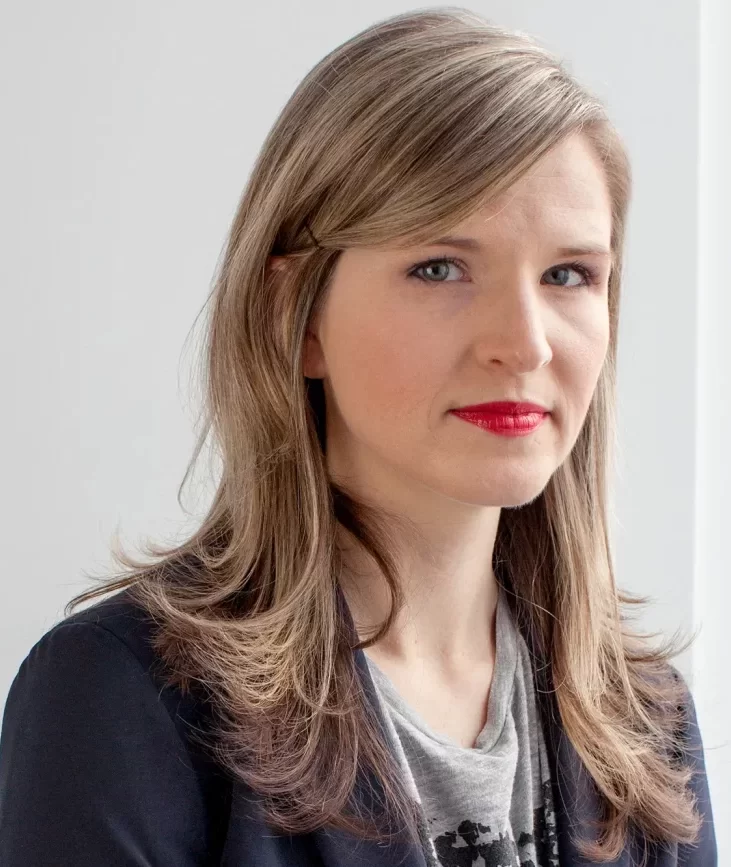

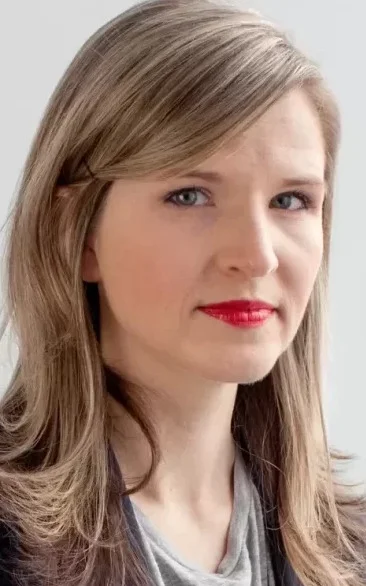
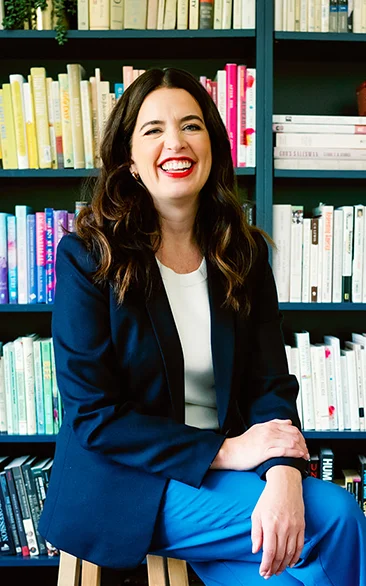



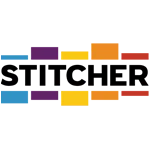




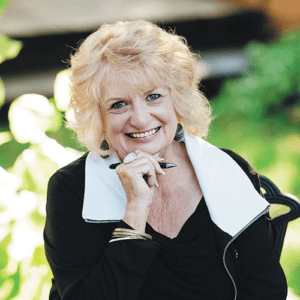
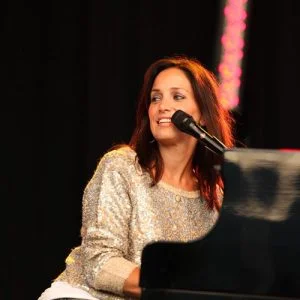
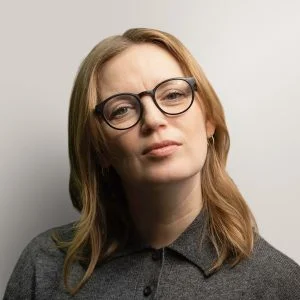

Leave a Reply